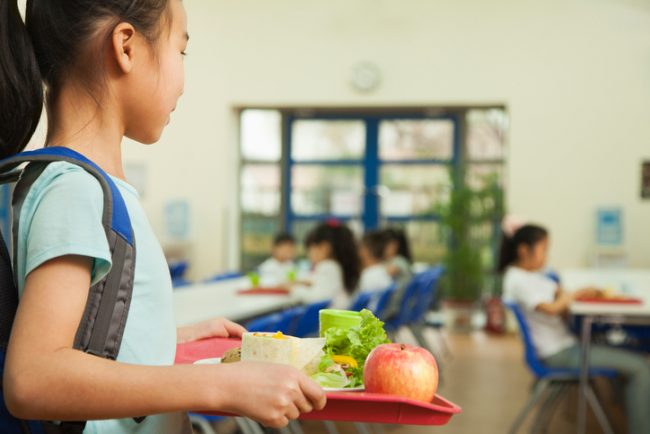Special diets and healthy choices are increasingly common, but many children still face questions and bullying over what’s in their lunchboxes. Here are some tips for helping your child handle questions and maintain pride over what they eat.
Many parents and caregivers are met with the same lunch dilemma. You want to pack a healthy lunch for your child, while fulfilling their dietary concerns. The “battle of the lunch box” doesn’t end at home, as kids are often met with questions and stigma in the cafeteria. The good news is that, whatever their dietary needs, your child isn’t alone.
Special diets are on the rise. Veganism grew by over 350 percent in the U.K. between 2006 and 2016. A 2012 Gallup poll found that five percent of U.S. adults identify as vegetarian, two percent identify as vegan, and those numbers are estimated to be rising.
Data indicates that teens are focusing more on vegetarian and vegan diets, as social media grows their awareness of nutrition and the meat industry. Healthychildren.org says it’s common for grade-schoolers to become vegetarian or vegan when they make the connection between animals and food.
In addition to those who opt for special diets, there are many children who need special diets to help manage health conditions like nut allergies, Celiac, and Crohn’s disease. But the abundance of children with unique eating habits and dietary needs doesn’t seem to reduce the number of questions, and even bullying, that many children face over what’s in their lunches.
So how can you help your child maneuver the social stigma of a special diet? Walter Gaman, MD, is a family practitioner who treats patients with special dietary considerations, and had to guide his own son through years of packing gluten-free lunches. Gaman says emotional support is key:
“Parents need to understand that there are emotional considerations that come along with dietary restrictions. The more you support your child emotionally, the better it will be for both of you.”
That’s good advice, and anybody who has helped a child with feelings of being “different” knows that can be difficult. Jonathan Harrop, LMFT, is a pediatric therapist who focuses on helping kids strengthen their identities and strengthen themselves against bullying. Harrop provides four actions you can take to help your child:
- Reassure your child of what gives them worth. Children need constant, regular reassurance that they are loved, lovable and are good kids. Many ill-attacks come from children who do not believe they are loved, loveable or are good kids and feel the need to take it out on others and pull others down.
- Share the truth of why people tease or bully. Help your child understand the reasons people will tease. People who tease or bully often have deep insecurities themselves, so they get together with other insecure kids to pick on others that are different than them to feel good about themselves. They do not bully because they are cool. They bully because they are insecure and feel the need to try to prove their coolness.
- Help your child see the value in what they eat. Help your child understand why they are eating healthy or have a special diet. If a child understands the reasons for healthy eating, it will strengthen their ability to withstand the attacks that come from other kids around their healthy eating or dietary needs.
- Practice how to respond to questions or bullying (Harrop calls this “mental Jiu-Jitsu”). If it’s a simple question, help your child practice giving a simple answer. For example:
Classmate: “That looks gross. What is it?”
Your child: “It’s hummus, and it tastes really good. Would you like to try it?”
Harrop provides this example to practice in the event of a bully attack:
Bully: “Are you really a vegetarian?”
Your child: “Yep.” (stated confidently)
Bully: “Weirdo.”
Your child: “Wow, thank you. My siblings love me, and they call me weirdo all the time. Are you trying to tell me you love me?”
The goal of mental Jiu-Jitsu is to disarm the aggressor. According to Harrop, “The point is that our response to the verbal blows is not met with blocking, blowing back, or even running away, but is a response that rolls with the punch to throw the person behind you. This is easier for a child to do when they have confidence in themselves, which you can give them, and when they believe in the reason for their health habits.”
Maintaining a healthy or special diet can be hard enough without being hassled into embarrassment about it. Working with your child to build their confidence and self-worth, along with educating them about their dietary needs will reduce lunch-time stress and help them be successful at feeding their bodies what they need.
Don’t shy away from enlisting the help of your child’s favorite teacher and the guidance counselor. They may be able to address bullying in the classroom, and it’s always good for kids to know who to turn to when they need additional support.
Looking for new and exciting recipes to make for your little ones? Check out our collection of FREE specialty diet recipe e-books.

